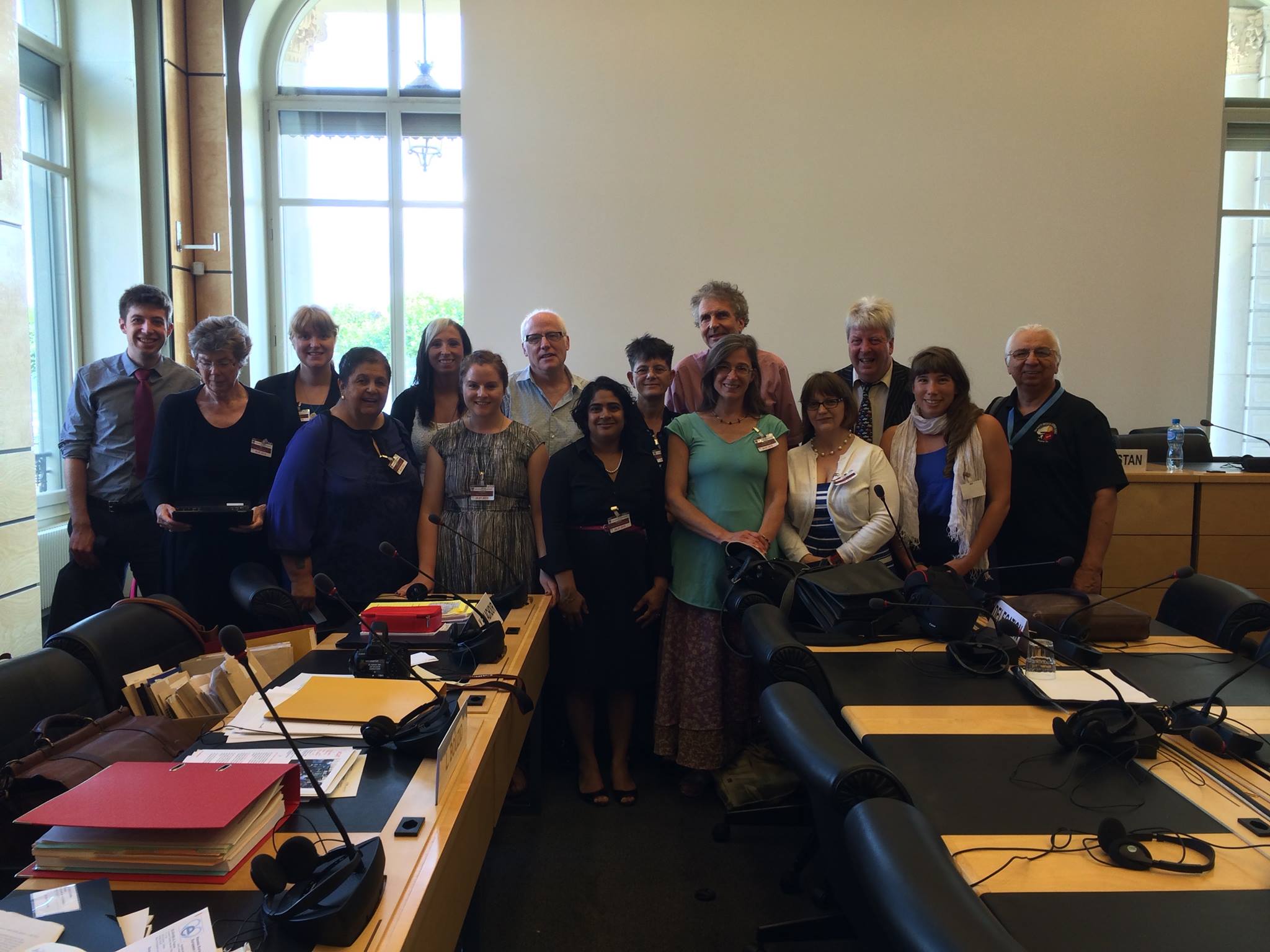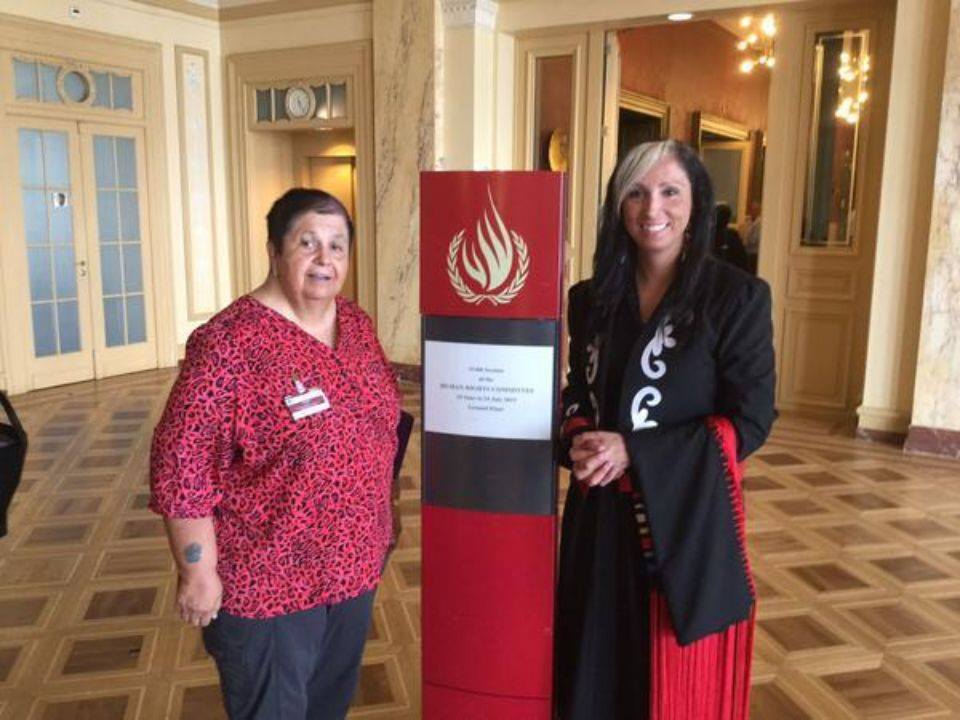Corporate Social Responsibility
In the review, Canada stated that international treaties ratified by Canada are not binding law in Canada. Canada also stated that Canadian companies doing business abroad are expected to demonstrate Canadian values and follow applicable human rights laws. However, if the State does not consider ICCPR applicable law in Canada, then its corporate entities would have no reason to respect the human rights contained therein. I would thus recommend that the Committee both clarify the UN’s position in this regard and recommend to Canada to specifically implement the ICCPR into domestic law.
Gender Equality
In the review Canada stated that it is committed to gender equality and claimed that women make 91% of what men make. In fact, the national wage gap in Canada is 18%, much higher than other countries. In some provinces like Ontario, that gap can reach 31%. The gap is significantly higher for Indigenous peoples at 30% compared to average Canadian, and in some areas of Canada, the gap is as high as 88%.
I would recommend that the Committee recommend that Canada undertake specific measures and develop specific targets and measures to address sex discrimination generally and the wage gap specifically.
The Federal Court of Appeal in McIvor case confirmed gender discrimination, but Canada enacted Bill C-3 without consulting with First Nations, and which specifically denied any compensation for Indigenous women impacted. Indigenous women and descendants are the only group in Canada that has ever been denied compensation for a Charter right violation.
The Committee should also recommend that Canada negotiate a compensation package for all the Indigenous women and their descendants reinstated by Bill C-3 for loss of services (education, housing, health benefits, training).
Violence against Indigenous Women
Canada stated that one measure to combat violence against Indigenous women are the 40 shelters on reserve. It should be noted that there are 633 reserves in Canada, which means there are shelters in less than 6% of on-reserve communities. Canada also portrayed the crisis of murdered and missing Indigenous women as one of crime, when domestic and UN reports have confirmed the root causes are in Canada’s discriminatory laws and policies, the culture of violence against Indigenous women, and the chronic and discriminatory underfunding of essential human services, like food, water, housing, education and health.
I would recommend that the Committee support the recommendations of the Special Rapporteur on the Rights of Indigenous Peoples, IACHR and CEDAW to develop a national action plan to address the socio-economic conditions which result in the disproportionate vulnerability to violence in partnership with Indigenous communities and Indigenous women’s organizations and commit to a national inquiry.
Indigenous Children in Care
Canada submitted that it does not know what factors are at play to explain the gross over-representation of Indigenous children in state care. 50% of all children in care in Canada are Indigenous, despite being only 4% of the population and represent 90% of children in care in provinces like Manitoba. Canada’s own studies have shown that the root causes are poverty, the chronic underfunding of child and family services for First Nations on reserve, inter-generational trauma from residential schools and state discrimination.
I would recommend that the Committee recommend that Canada fund Indigenous Child and Family Services at levels no less than provincial levels, with extra funding to address the backlog and volume of cases and for additional Indigenous staff, training, and infrastructure for CFS services on reserve with a focus of keeping children in their families, communities and cultures.
Indian Act Sex Discrimination
Canada stated in its response to the List of Issues at para.125 that: “the Indian registration provisions in the current Indian Act do not discriminate against women”. When questioned by Committee about unresolved sex discrimination in the Act, it responded that Bill C-3 was “a step forward” and “no one sees it as anywhere near being concluded”, but that Canada prefers an “incremental approach”. This is not a good faith application of either domestic or international law obligations in relation to gender equality. Practically, this means Canada prefers to defend lengthy and costly law suits which take upwards of 25 years to reach the Supreme Court of Canada. There is no justifiable reason for Indigenous women and their descendants to wait 139 years for the Act to be slowly amended to eliminate gender discrimination.
Indigenous women and their descendants are already impoverished and without Indian status, miss out on health benefits, post-secondary education, and other social programs critical to their health, safety, and well-being; which we already know makes them vulnerable to violence. Canada also stated that they have a “Special Rapporteur” that is currently “consulting” with First Nations on how to clean up the Indian Act discrimination. This is simply not true – and if it has done so, they have not informed anyone.
I would recommend that the Committee recommend to Canada that it amend the Indian Act to eliminate all sex discrimination in the Indian Act’s registration provisions and it could start by immediately by amending the registration provisions as follows:
(a) remove the 1951 cut-off and ensure that all direct descendants on the female Aboriginal line, born prior to April 17, 1985, are accorded the same 6(1) status as the descendants on the male line;
(b) ensure that no one born prior to April 17, 1985 who is entitled to status is consigned to s. 6(2) status;
(c) ensure that entitlement to 6(1) status is extended to the female child of the status man and non-status woman who were unmarried; and
(d) all administrative barriers are removed so that unmarried status Indian women are able to transmit their Indian status to their children, even if the father is unstated.
Police Misconduct
In responding to various concerns raised in Committee related to sex discrimination, violence against Indigenous women, and police misconduct, Canada failed to mention the major class action suit filed against the RCMP by female staff and officers for sex discrimination. It failed to mention the Human Rights Watch report which documented instances of RCMP sexually and physically assaulted Indigenous girls. It also did not mention the Donald Marshall Inquiry, Manitoba Justice Inquiry or Ipperwash Inquiry which all found that racism against Indigenous peoples in Canada’s police forces is a major problem that has yet to be addressed.
I would recommend that the Committee recommend that Canada develop a more robust and transparent oversight mechanism for all police forces that is completely independent from both political and police interference which a specific focus on and Indigenous ombudsperson for Indigenous peoples.
UNDRIP
In the review, Canada did not orally respond to the question in committee about whether Canada has changed domestic law and policy to align with its endorsement of UNDRIP. In Canada’s Statement of Support it states: (1) it is an aspirational document (2) it’s not legally binding in Canada (3) it does not reflect customary international law (4) it does not change Canadian law. When former Minister of Indian Affairs John Duncan was questioned on the impact of UNDRIP, he responded that Canada has its “own agenda” and as a result does not “anticipate any significant change”. Canada’s endorsement of UNDRIP is not done in good faith or with intention to have any practical effect.
I would thus recommend that the Committee recommend to Canada that Canada implement the UNDRIP in good faith.
Indigenous Languages
In the review, Canada stated that the reason for Indigenous language loss included migration and the media. The real cause of language loss stems from Canada’s assimilatory laws and policies, like residential schools, which tortured, abused and shamed children for speaking their languages. Indigenous languages were literally beaten out of many generations of Indigenous children. Canada admitted this in its residential school apology: “The government now recognizes that the consequences of the Indian Residential Schools policy were profoundly negative and that this policy has had a lasting and damaging impact on Aboriginal culture, heritage and language.”
Immediately after this apology, Canada cut funding to Indigenous languages further exacerbating the problem. Canada’s legal and economic promotion and support of English and French has not been extended to the same degree for Indigenous languages and they have no data to show that their minimal efforts in this regard have increased language use. In fact, Canada’s $5 million/year language budget amounts to less than $5 per Indigenous person in Canada annually. It is simply impossible to save languages at this token level.
I would recommend that the Committee supports the recommendations of the Truth and Reconciliation Report and recommend that Canada provide immediate and significant funding to First Nations on par with funding that supports English and French languages, to ensure immersion and adult programs in every First Nation in Canada.
Submitted by Dr. Pamela D. Palmater, Mi’kmaw Nation, sponsored by Franciscans International, on July 9, 2015 in Geneva, Switzerland.
Note:
(Some of the NGOs in Geneva Switzerland)
After hearing a great deal of misinformation and non-answers from Canada during the United Nations Human Rights Committee’s review of Canada’s obligations under ICCPR (International Covenant on Civil and Political Rights); some of the NGO’s (non-governmental organizations) that attended asked if we could submit clarifications to the committee before they conclude their review. We were given permission to do so, and some of us submitted briefs which were to be no longer than one page. My original submission contains footnotes and links to sources not provided here.
Some of the other NGO’s (like FAFIA and Amnesty International), made clarifications and recommendations related to various issues, some of which included:
– addressing homelessness as part of the right to life;
– insufficient review and oversight of security and law enforcement under Bill C-51;
– the need to support unanimous recommendations by all international human rights bodies recommending a national inquiry and action plan on murdered and missing Indigenous women;
– need to Canada to respect laws related to free, informed and prior consent of Indigenous peoples for land use, including extractive industries;
– removal of sex discrimination from the Indian Act registration provisions; and
– clarifications around the skewed RCMP statistics which try to paint a discriminatory picture of Indigenous peoples.
Canada was given 48 hours to submit written material to supplement their oral testimony. The Committee’s conclusions are due July 23, 2015.

